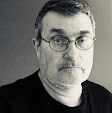Forget what books and movies, your teachers, professors, parents and grandparents all tell you about WWII's "hands across the water" holy war against the utterly evil Nazi values:
because no nation in WWII ever went to war against the Axis unless and until they were first directly attacked by the Axis : on the factual evidence, they warred against the Axis solely in self defence.
Except, of course, for the empires of England and France --but :
if the peoples of these two superpowers still claim that they went to war solely on behalf of the small victims of the Axis, their subsequent actions would hardly prove that assertion -- as generations of Polish (and Jewish) academics are rightly eager to point out.
The problem was that the values of the Axis were but an extreme form - but still fully recognizable - of the same values of Modernity espoused by the middle class of every 'modern' nation on earth in that era .
A world wide middle class culture as largely indifferent to the lynching of Blacks in Georgia USA as to the lynching of Jews in Georgia USSR.
Those values were somewhat under attack during the Great Depression period.
But recent research has revealed that the WWII years were unexpectedly a time when protest against such un-charitable values was actually muted - not heightened - by the military conflict against the nations applying those values in their most extreme forms.
WWII's ideological war that didn't parallel the military war
But I think there was still one all-out ideological battle during WWII, one that ended in the defeat of the Modernity values that fuelled the Axis and led in time to our open commensality led era of post-Modernity diversity and tolerance.
That battle was over who/what would provide the bulk of the Allies' D-Day penicillin.
Synthetic Penicillin to be the Poster Boy of WWII's Terrible Simplicities
On one side were hundreds of the smartest chemists in the universe , assembled by the Allied scientific establishment which believed that man-made synthetic penicillin simply had to be better and cheaper than anything stupid Nature could come up with.
On the other side, an invisibly small team in a backwater ward at Columbia Presbyterian hospital whose leader
Martin Henry Dawson said 'don't count the old and the slow and small microbes out so quickly - they just might be able to do it better and cheaper and quicker'.
A lot was at stake : for all of the towering edifice of Modernity was actually sustained on a single slender stock of pure conjecture.
That conjecture was that the biggest, most swiftly advancing, most complex human civilizations at the cutting edge of Life had to inevitably be smarter that the oldest,slowest, smallest microbes that began Life three billion years earlier -in each and every area.
Reductionism was the ideology of Modernity.
It saw the basic bricks of life or reality as being simple and simple minded .
So complexity/intelligence had to grow out of these bricks being assembled into ever bigger entities in a single straight upward line : complexity growing steadily upwards from a single electron to the Hoover Dam, from a single penicillium 'yeast' cell to a tenured chemist with a PhD.
It was true that there was an infection-filled war on and any sort of life-saving penicillin was greatly needed - now !
But the Allied scientific elite would unconsciously rather lose the military war to their (fellow modernist) Nazi opponents than lose the much more important ideological war to the despised slime cells on the question as to who could better make the vital lifesaver : sophisticated Man or stupid microbe.
Feel free to substitute Negro, Jew, Oriental, aboriginal, woman, homosexual, cripple for microbe to better appreciate their deepest physic fears.
But in the end, by D-Day 1944 and beyond, all those genius-level chemists had totally failed - and have still failed, seventy five years on : a single yeast penicillium cell still makes penicillin cheaper and better than by any human synthetic method.
And from that same basic wartime penicillin G, still made in the tens and tens of thousands of tons today by those incredibly tiny yeast cells, we humans create almost all the infection fighting antibiotics we have today.
If the human small and the slow and the old and weak have more respect today than they did in 1940 - and they do, much much more - it won't hurt to thank the first ones who gained that reluctant respect : the penicillium yeasts cells ...

